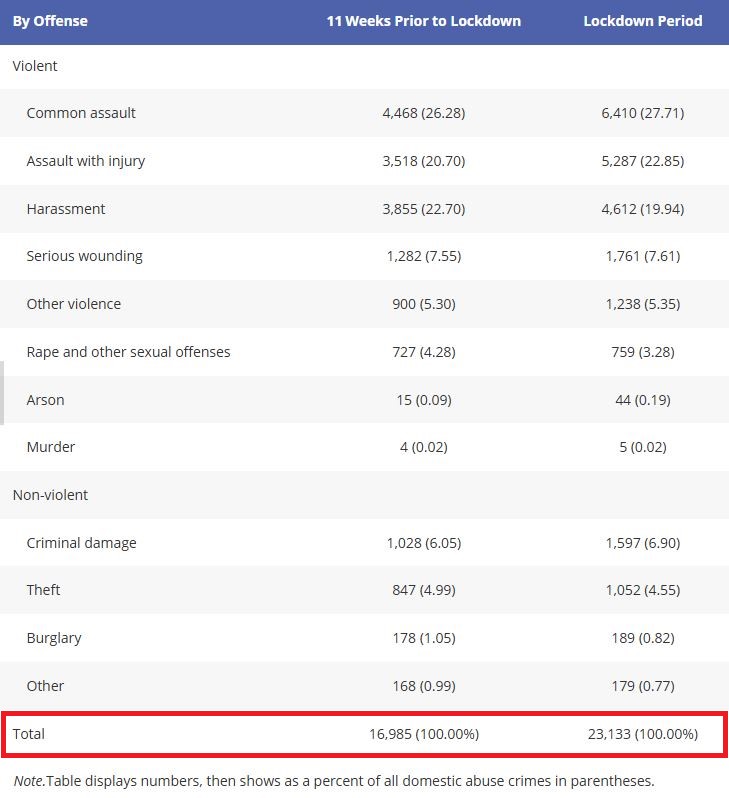"When the prime minister of the United Kingdom, Boris Johnson, addressed the nation on March 23, 2020, to tell viewers the country was going into lockdown... The restrictions put in place meant that people could only leave their homes to shop for necessities, as infrequently as possible, exercise for up to an hour a day, and only travel to work if their job could not be conducted from home. Non-essential shops were forced to close, any social events or gatherings (such as weddings, christenings, or birthdays) were banned, schools were shut, and sports events were canceled. These restrictions stayed in place for seven full weeks of lockdown, until conditions were eased on May 10th when people were allowed to return to work and take unlimited exercise, and finally, lockdown restrictions were fully lifted on June 15th when non-essential shops and primary schools were re-opened...
[T]here was little or no discussion at this stage of the effect this confinement would have on domestic abuse, despite the fact that existent evidence showed domestic abuse tends to increase when families spend more time together (like Christmas) and in stressful situations... For [victims of domestic abuse], home is far from a safe place and often the freedom of leaving home to go to work or visit family and friends is an escape from their abuser. This paper uses data from the Metropolitan Police for the whole of the metropolitan area of London to examine what happened to domestic abuse before and after the first COVID-19 national lockdown and beyond...
Discussion
... Using a before and after approach we examined whether domestic abuse was higher during lockdown than it was before and showed that even after controlling for other factors associated with differences in domestic abuse there is a rise in recorded domestic abuse crimes during lockdown, when the probability of being a victim of domestic abuse increased, by around 3 percentage points, on average. In terms of magnitude, the increase is similar to the rise in domestic abuse associated with the Christmas holidays...
The second research question focuses on whether the increase in domestic abuse is greater for some groups than others, with results showing that women, the youngest age group, and older people experienced higher increases in the probability of being victims of domestic abuse during lockdown than others... Of the domestic abuse-related crimes, it was the most violent crimes that saw the greatest increase during lockdown."

© The Author(s) 2024.
This article is distributed under the terms of the Creative Commons Attribution 4.0 License (https://creativecommons.org/licenses/by/4.0/) which permits any use, reproduction and distribution of the work without further permission provided the original work is attributed as specified on the SAGE and Open Access pages (https://us.sagepub.com/en-us/nam/open-access-at-sage).
